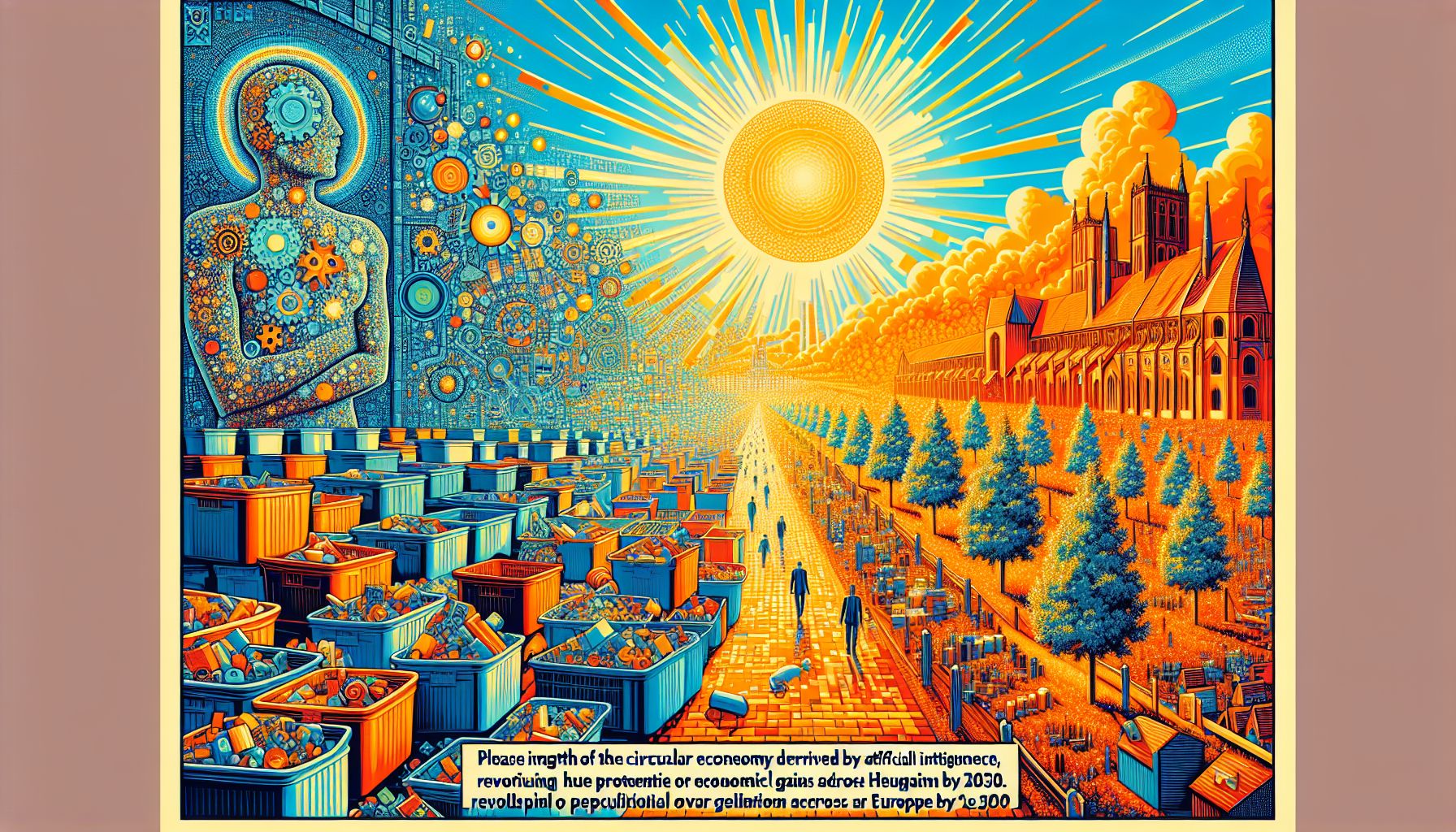AI Drives Circular Economy Growth in the Netherlands

Netherlands, Monday, 4 November 2024.
Artificial intelligence is accelerating the circular economy in the Netherlands, improving material efficiency and waste reduction. This AI-driven innovation could generate significant economic gains by 2030, potentially reaching €1.8 trillion across Europe. The technology is revolutionizing waste management and product design, despite challenges in implementation.
Transformative AI in Waste Management
One of the most notable applications of artificial intelligence in the circular economy is its impact on waste management. Advanced AI-driven sorting technologies are being employed in recycling facilities to enhance the speed and accuracy of sorting processes. These systems utilize computer vision and robotic arms, significantly improving the quality of recycled materials. Through hyperspectral imaging and deep learning, AI can accurately identify the exact composition of materials, leading to better sorting outcomes[1].
Innovative Product Designs with AI
AI is also reshaping product design by conducting extensive analysis of thousands of design iterations to devise sustainable solutions. This approach focuses on optimizing material usage and ensuring product repairability, which ultimately extends the product lifecycle and reduces waste. By incorporating AI in the design process, companies can create products that are not only environmentally friendly but also economically viable[1].
Economic Implications and Challenges
The economic potential of AI in enhancing the circular economy is substantial, with projections of a net gain of €1.8 trillion by 2030 across Europe[1]. However, realizing these benefits requires considerable investment in technology, skill development, and organizational change. Businesses must weigh these costs against the long-term environmental and operational advantages that AI integration offers[1].
The Path Ahead: Standardization and Collaboration
For AI systems to function effectively across different organizations, the establishment of common standards and protocols is essential. International collaboration is crucial in achieving this standardization, enabling AI systems to be effectively utilized on a global scale within the circular economy framework. This collaborative effort is vital to ensure that AI-driven solutions can be implemented seamlessly across borders, enhancing their impact on sustainability[1].
Future Prospects of AI in the Circular Economy
Emerging technologies such as quantum computing and edge AI are anticipated to further expand the capabilities of AI within the circular economy. These advancements promise even more sophisticated methods for regenerating natural systems and circulating materials efficiently. The integration of AI with circular principles presents a promising avenue for addressing current sustainability challenges, offering innovative solutions that could transform industries worldwide[1].

